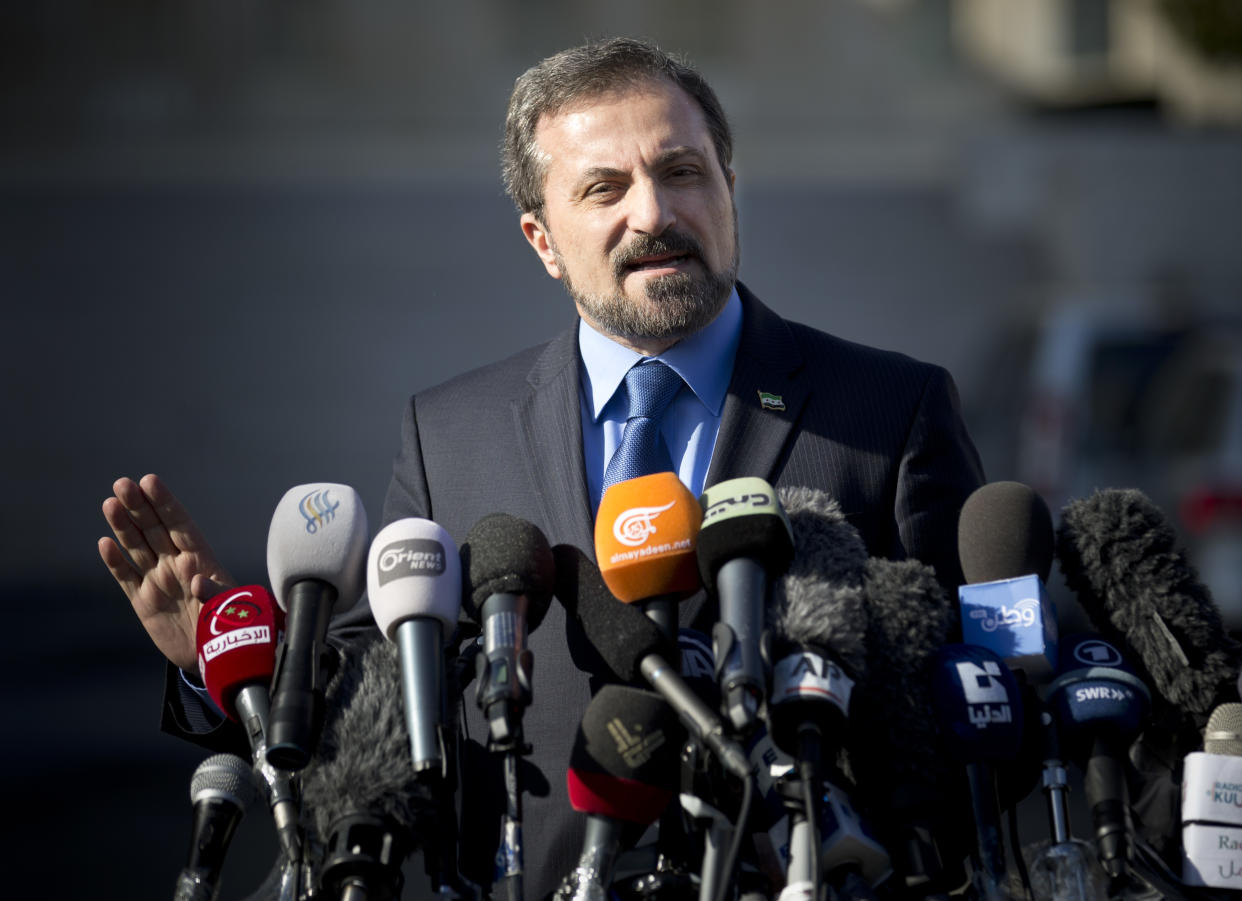US, Russian diplomats may meet Syria delegates

GENEVA (AP) — Syrian negotiators on Tuesday held their first face-to-face meeting this month as U.S. and Russian officials prepared to join the stalemated peace talks in Geneva.
The meeting broke up after three hours, and both sides said the session failed to produce an agreement even on the agenda. U.N.-Arab League mediator Lakhdar Brahimi told reporters afterward that start of meetings this week was "as laborious" as the first session two weeks ago, but the Syrian people need faster progress from the talks.
"I am urging everybody to speed up except those who kill people, they shouldn't speed up," he said at a brief news conference. "I am not sure whether I can impose an agenda to people who don't want (it). What can I do: Put a gun to their heads? It is their country, this is a huge responsibility they have."
The opposition blamed the government for the stalemate.
"Clearly there has been no progress today. Even on the agenda, the regime was arguing with Mr. Brahimi, not allowing him to come up with an agenda acceptable by all parties," opposition spokesman Louay Safi told reporters.
"These people are not here to come up with a political solution, but they're insisting on killing people in Syria to maintain the rule of the one person and dictatorship," he said. "I want to say to the Syrian people that we will not be here endlessly. There will come a time when it will become clear the regime does not want any solution and we will exert moral pressure on the U.N. to take a position."
Syria's Deputy Foreign Minister Faisal Mekdad blamed the opposition for "another lost day."
"This group of opposition, the coalition, is insisting to waste your and our time," he said. "Today they wasted all the time discussing nothing, saying that there is no terrorism in Syria."
Mekdad also objected to plans to involve the U.S. and Russian officials in discussions this week.
"We did not agree to this meeting and this issue was not discussed with us seriously," he said. "If this meeting is between the Russians and Americans and the U.N., they are free of course to meet but we stress ... that any dialogue, discussion or negotiation must be between the Syrian sides only because they are the ones concerned with such a dialogue."
Monzer Akbik, a senior member of the Syrian opposition delegation, told reporters that his side presented a paper outlining its "vision for the political solution in Syria" and that delegates may hold bilateral meetings with U.S. and Russian officials on Friday.
U.N. officials confirmed that there will be a three-way meeting in Geneva on Friday including Brahimi, Russian Deputy Foreign Minister Gennady Gatilov and the U.S. undersecretary of state for political affairs, Wendy Sherman. Syrian negotiators also may join in bilateral meetings with the Americans and Russians.
Akbik said officers from the Western-backed Free Syrian Army rebels have arrived in Geneva to run a "military advisory room" that helps coordinate security issues related to the peace talks.
Russia put the brakes on one avenue for pressuring Damascus, saying it would veto a Western-proposed U.N. resolution threatening sanctions if Assad's government does not allow full deliveries of aid to civilians caught in the fighting.
Russian Foreign Minister Sergey Lavrov, whose nation has joined with China in vetoing three other Western-backed resolutions on Syria, said in Moscow that the latest draft resolution was a "one-sided" effort to blame Assad's government for holding up aid.
The U.N. refugee agency's spokeswoman, Melissa Fleming, said Syrian authorities are holding more than 300 men between the ages of 15 and 55 who took advantage of a U.N.-brokered ceasefire to flee from the besieged rebel-held city of Homs.
Some 1,132 people were evacuated in the past four days as part of a deal that requires men of fighting age to be questioned, Fleming said in Geneva. Syrian authorities had questioned 336 men in Homs province and released 41, and the refugee agency is monitoring those still held in an abandoned school, she said.
___
Zeina Karam in Geneva and Vladimir Isachenkov in Moscow contributed to this report.

